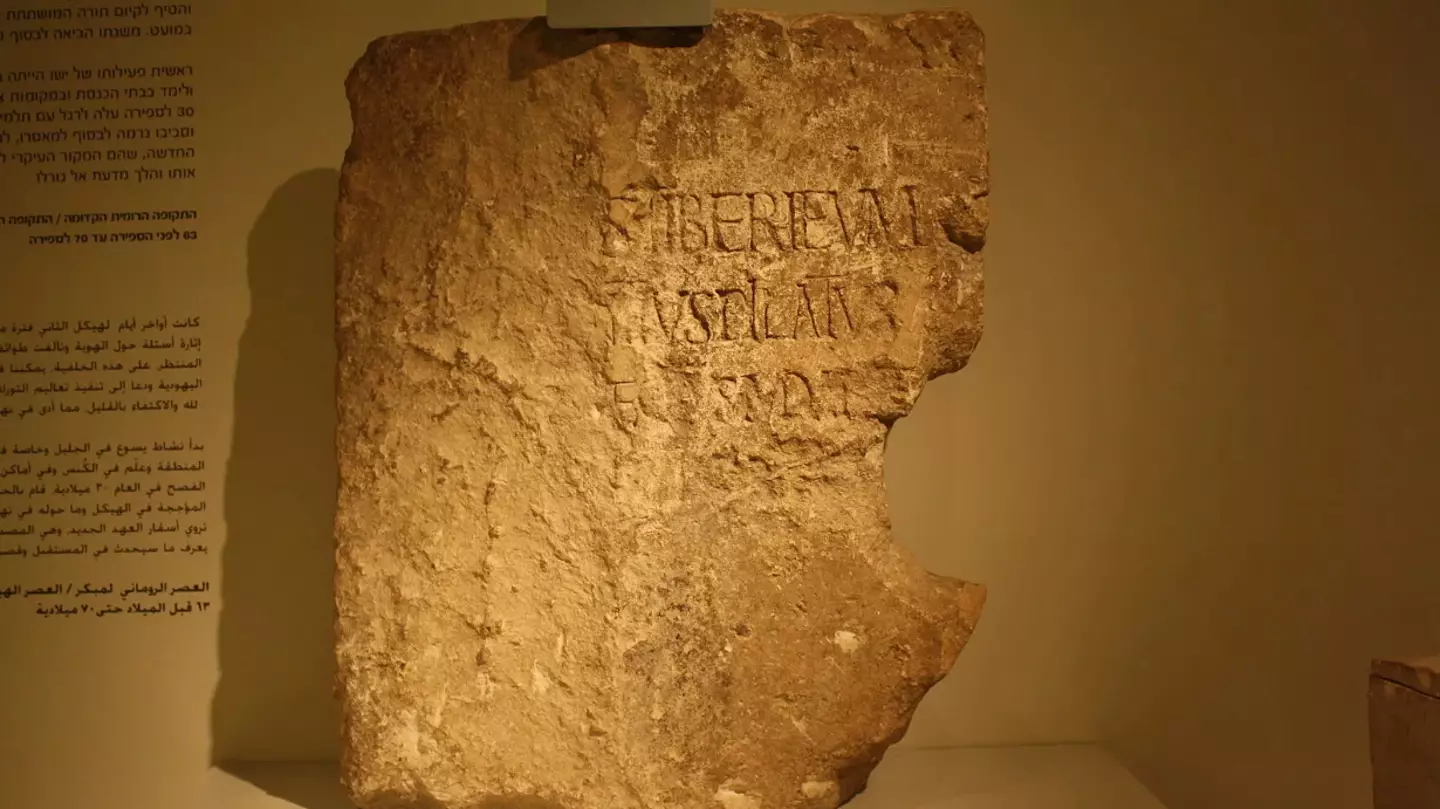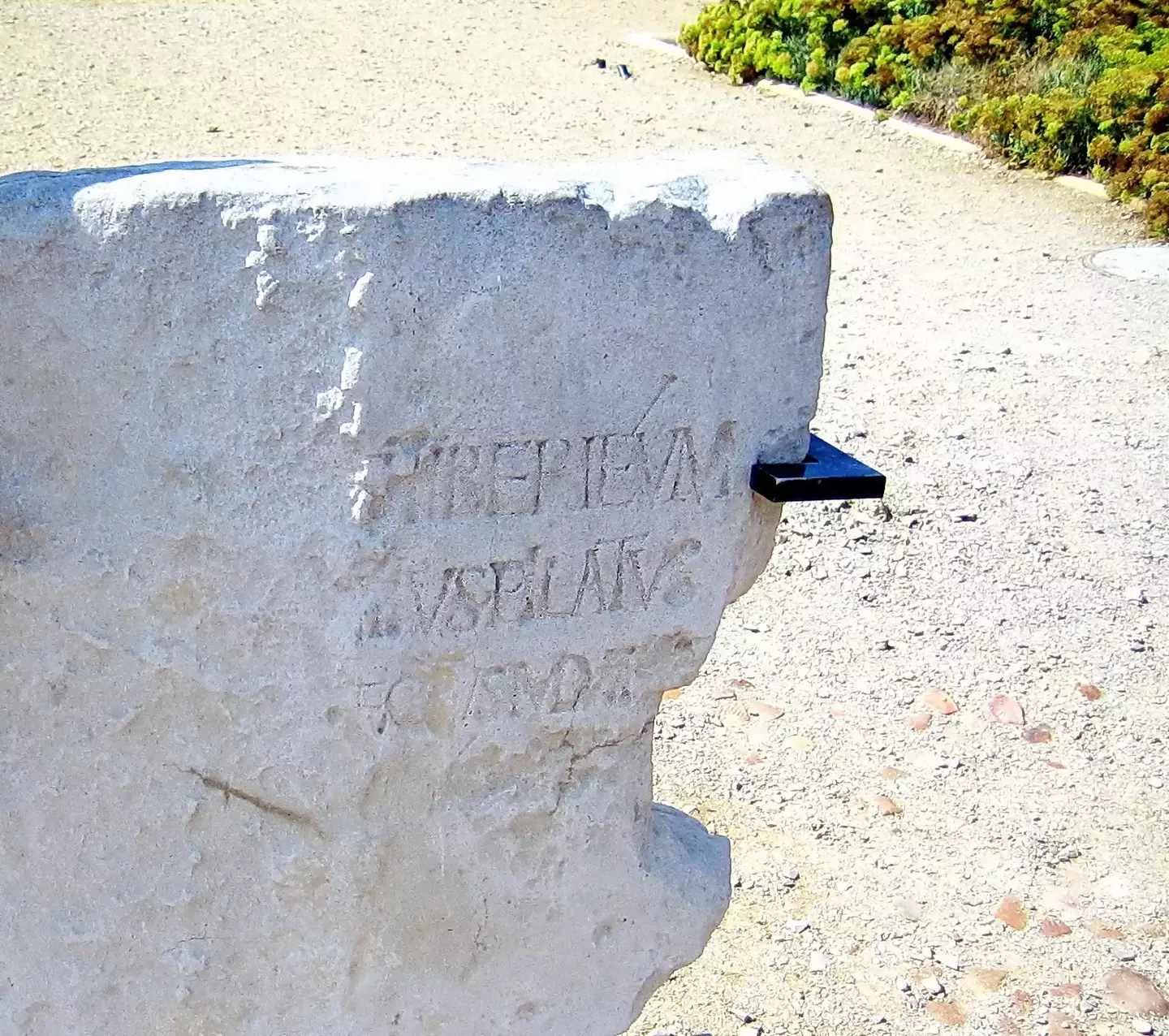
The discovery of a piece of rock in 1961 ended up being the cornerstone in proving for sure that the man named in the Bible as the one who sentenced Jesus Christ to death was real.
Pontius Pilate was named in the Bible and various other texts, but proper historical evidence that he existed and that was his actual name was unavailable for almost 2,000 years.
The Romans normally kept pretty good records, but besides some mentions from their historians, the proof of his existence was very thin on the ground.
However, in 1961, while a team of archaeologists were excavating the ruins of an ancient theatre, they found a stone with a partial message carved onto it.
Advert
The message read: "S TIBERIÉUM, US PILATUS, ECTUS IUDA E, E."

It's only a partial bit of the stone carving which survived nearly two millennia, but the experts worked out what the full message was supposed to be.
"DIS AUGUSTIS TIBERIÉUM, PONTIUS PILATUS, PRAEFECTUS IUDAEAE, FECIT DEDICAVIT," is what it would originally have said, and that means 'To the Divine Augusti Tiberieum, Pontius Pilate, Prefect of Judea, dedicates this'.
READ MORE:
PREACHER WHO PREDICTED END OF WORLD RESPONDS AFTER IT DIDN'T HAPPEN
Basically, it's one of those plaques you see outside public buildings, which dedicate it to the people in charge, so in this case, Pontius Pilate, Prefect of Judea, is dedicating the building to the Roman Emperor Tiberius and his family.
Basically, the discovery of the 'Pilate stone' proves that Pontius Pilate was a real guy and he was in charge of Judea, which plonks him firmly in place to be the guy who sentenced Jesus to death in the Bible.
He is also famously supposed to have washed his hands after passing the sentence, which gave rise to the gesture intended as a display of wanting no more to do with something.

Nailing down proof of his existence, which is literally set into stone, would appear to verify the other accounts about him.
As such, after the whole business with Jesus, Pontius Pilate is recorded as having been removed from his job after he killed a group of Samaritans who had been searching for relics belonging to Moses.
The Samaritans complained to another Roman official who had Pilate removed and sent back to Rome to be judged by the Emperor Tiberius, who died of old age before any sort of trial could go ahead.
Whether Pilate faced any punishment from Tiberius' successor, Caligula, is unknown, but historical accounts indicate that he at least didn't get his old job back, with one account suggesting he ended up committing suicide.
After that, he largely drops out of the historical accounts of the time, and so these discoveries are all we have.
Topics: History, Religion, World News